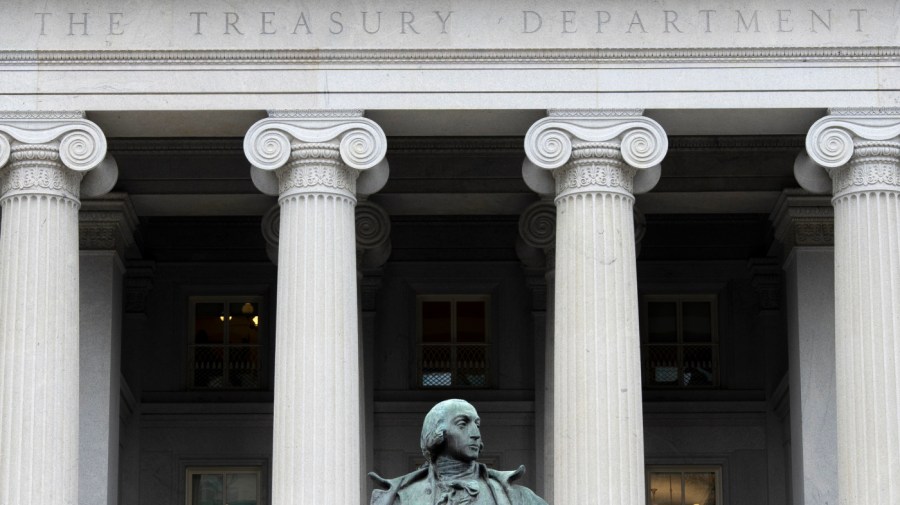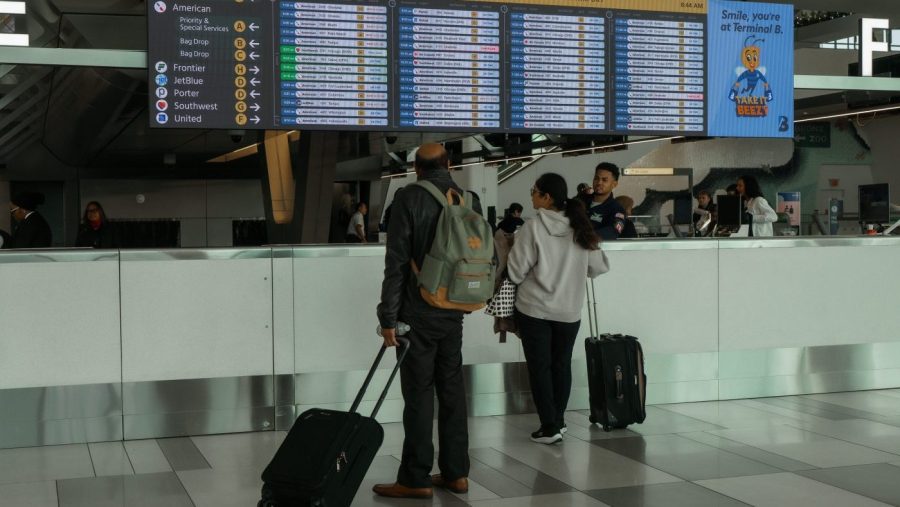Students are taking a more careful approach to their higher education amid the questionable economy and new policies by the Trump administration cracking down on student loan relief.
More Americans are earning double majors due to fears one degree won’t be enough to make it in the job market and fears that their student loans will be harder to repay in the future.
“There’s certainly more anxiety about taking out student loans, as well as choosing majors — many students feel pressure to choose a major that will ‘pay off,” said Katie Wood, lending expert at Nerd Wallet.
A Hechinger Report analyzing federal data found substantial increases at some schools in double majors from 2014 to 2024. In the 2023-2024 school year, 12 percent of graduates had a double major, compared to 6 percent back in 2014.
Drexel University had the biggest jump in double majors, a 591 percent increase, with Harvard University following at 334 percent and Belmont University at 317 percent.
“It reflects a strategic mindset — students are pairing passion with practicality. We’re seeing combinations like psychology and data analytics or English and marketing. That said, a double major can also mean higher tuition or extra semesters, so it’s important to weigh the return on investment,” said Ken Ruggiero, CEO of Ascent, a college and loan planning company.
Today’s college students vividly remember the pandemic and its related economic downturn. And now, recent graduates are struggling to find work as employers are being cautious due to uncertainty over President Trump’s tariffs and other economic policies.
The Federal Reserve Bank of St. Louis said over the summer the unemployment rate for graduates with a bachelor’s degree was at its highest since 2014.
“The economy has made students more intentional than ever. Inflation, rising interest rates and talk of federal program rollbacks are prompting students to think critically about the ROI of their degrees. We’re seeing more students choose majors linked to in-demand industries (healthcare, business, data science) where the path to a stable, well-paying career is clear,” Ruggiero said.
And graduates are contending with the new threat of AI and how it may impact some of the fields they just got degrees in.
The benefit of a double major, if done right, could get a student more bang for their buck and protect them from the vulnerability of expertise in only one area.
“If you can actually complete your double major in four years, it’s not going to cost you double tuition,” Rodney Williams, co-founder of SoLo Funds, a personal finance app. “When school is expensive, they’re trying to get as much as possible.”
“Additionally, I think in this particular environment, it’s important for students to try to be as competitive as they possibly can be and being competitive in this particular market sometimes involves having multiple degrees. It’s an unfortunate reality that I don’t think the current decisions around education are going to slow it down. If anything, it’s probably going to accelerate it.”
And economic factors aren’t just impacting what students study but how they go about paying for it as Republicans clamp down on student loan forgiveness efforts.
Trump got rid of the Saving on Valuable Education (SAVE) plan created under the Biden administration, which was dubbed one of the most generous repayment options in history. Along with its termination, income-driven repayment options are dwindling down to two choices by 2028, and caps will be implemented on how much certain individuals can borrower from the federal government.
The Graduate PLUS program, which helped students covered the full cost of a graduate or professional school, is going away, and a lifetime loan cap of $100,000 will be put on graduate students. For law and medical students, the lifetime cap will be at $200,000.
Parent PLUS loans will no longer be eligible for repayment programs and will be capped at $65,000.
The Trump administration is also looking to kick some groups off of the Public Service Loan Forgiveness (PSLF) plan for “unlawful activities,” with opponents saying it will be used against those who work on transgender health care or immigrants’ rights.
The actions have been challenged in court.
“Borrowers are understandably anxious. They’ve just started to make sense of existing repayment plans like SAVE, and now there’s talk of fewer forgiveness options, and even dismantling the Department of Education. The biggest concern we hear is uncertainty — students want stability and transparency so they can plan ahead. At Ascent, we’re seeing a shift toward action. More students are exploring both federal and private loan options now to lock in today’s rates and benefits before potential policy changes take effect. They want to make informed, proactive choices rather than waiting for the next set of rules to change underneath them” Ruggiero said.
Experts are encouraging students to look at all their options and calculate what their monthly payment would look like after college for each plan.
A Nerd Wallet survey in 2024 found one in five students borrow more money than what they need for school — and every dollar counts in repayment.
FAFSA and scholarships are two other college financing plans that are encouraged for those looking to pay as little money back as possible after school.
“People sometimes want to look at college as a dollar-in, dollar-out investment, and it simply doesn’t work that way. Even if you’re someone who’s sitting down with Department of Labor data and crunching the numbers, you need to be comparing tuition against potential lifetime earnings, not just what you might expect to make within a year or two of graduation. There are also plenty of majors that don’t necessarily correspond directly to certain careers or fields, but that still provide marketable skills,” Wood said.














